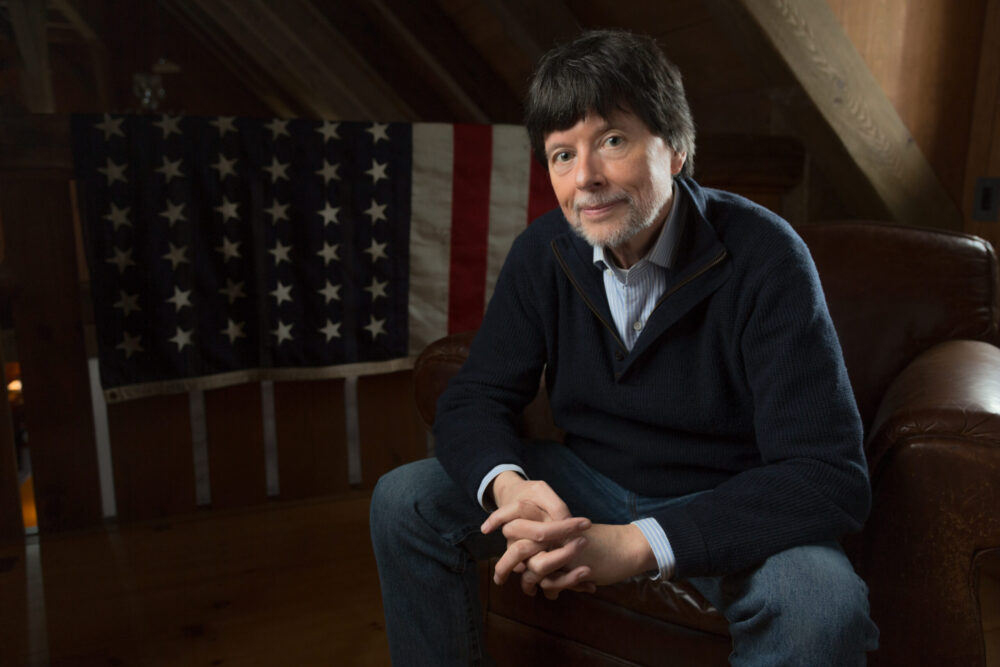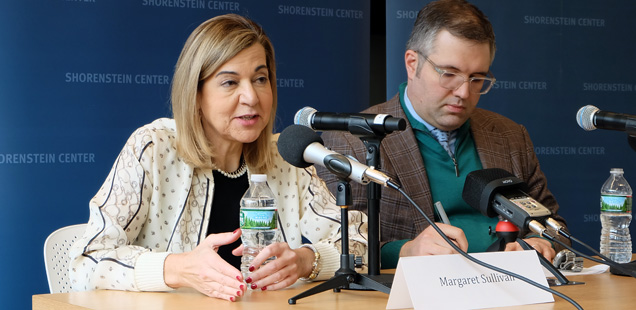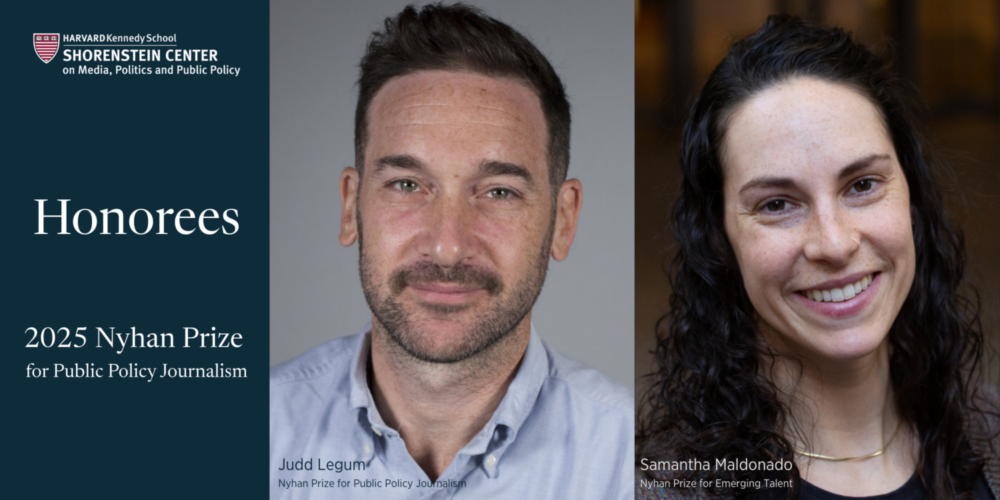
Center News
Ken Burns to give Theodore H. White Lecture on Press and Politics
Newsletter

Our weekly roundup of news found at the intersection of media, politics, policy and technology, from the Shorenstein Center and from around the web. Sign up to receive Media and Politics Must Reads in your inbox each week. Also connect with us on Twitter and Facebook for more updates.
Margaret Sullivan: The State of the Media in 2018. Washington Post media columnist Margaret Sullivan discussed the challenge of covering President Trump, public trust in media, social media platforms and news, and more.
Covering populist leaders: 10 research-based tips for journalists, from Journalist’s Resource.
Livestream Today: Launch Event—Guide to Audience Revenue and Engagement. Elizabeth Hansen, research fellow for the Shorenstein Center’s Single Subject News project, will discuss a report she co-authored, which offers detailed strategic and tactical advice to digital news publishers who want to grow their sources of direct audience revenue (including membership, subscription, and donation) while strengthening their journalism and deepening their relationships with readers. Watch the livestream here from 4:00-6:00pm EST.
MPs warned against term ‘fake news’ for first live committee hearing outside UK. Claire Wardle, research fellow, testified before the UK House of Commons during a hearing on misinformation this week. Rather than focusing on “fake news,” Wardle argued that “the committee should have a much wider focus, covering misinformation including inaccurate posts on social media ranging from Facebook to 4Chan, image and video search results, and even offline events that are instigated online.”
Replacing Newsfeeds for Newspapers: The Detriments of Using Facebook for News. Matthew Baum, Kalb Professor of Global Communication, says that “if people are motivated to engage in selective exposure—meaning seeking out information sources that reinforce what they already believe or tell them what they believe is true—social media probably makes that easier.”
State of the Resistance. Jelani Cobb, A.M. Rosenthal Writer-in-Residence, writes that “Trump’s opponents understand themselves not simply as defenders of particular policy positions but as stalwarts of democracy.”
The Market vs. Democracy. Dipayan Ghosh, Joan Shorenstein Fellow, writes that “The tools that let companies place targeted ads online also help bad actors like Russia spread disinformation.”
The Nunes memo shows Republicans buy their own conspiracy theories. Walter Shapiro, spring 2005 fellow, argues that “Ever since Watergate, the standard for any scandal is whether there is a smoking gun left next to a corpse. In the case of the Nunes memo, we lack a body and the gun is a child’s toy pistol.”

Center News

Center News

Center News